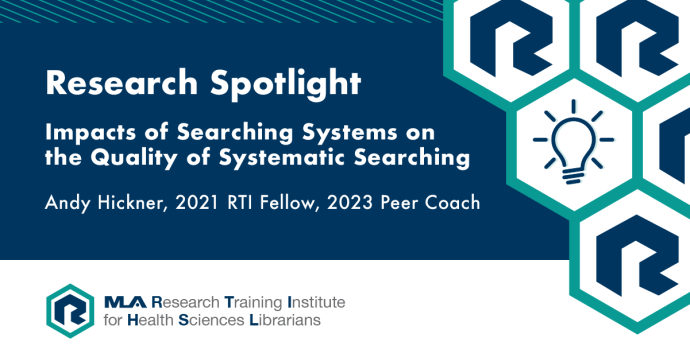Ask any librarian with systematic review experience about what challenges they've encountered, and odds are that their complaints will include the databases themselves. There is plenty of literature on search methods for evidence synthesis projects, as well as a smaller number of studies evaluating the functionality of search systems such as search platforms, databases, trial registers, and other information sources using objective criteria.
For my Research Training Institute project, I sought to explore how information specialists working on evidence synthesis projects navigated the limitations of these search systems, and how it might impact which sources they chose to search, using a qualitative approach. I collected qualitative data by interviewing 12 information specialists with evidence synthesis experience and analyzed data from our interviews using reflexive thematic analysis. The results of my interviews with systematic searchers have been published in the Journal of the Medical Library Association (JMLA).
Participants described the myriad ways the affordances and the limitations of these systems shaped the way they search. I also found that economic factors played a role, with searchers sometimes lacking access to their preferred systems, and vendors often failing to prioritize their needs. Based on these findings, I argued that providers of these systems should understand systematic searchers as a distinct user group with their own distinct needs. Addressing these needs will help us search more effectively and help us find efficiencies in the notoriously labor-intensive and time-consuming process of evidence synthesis; in short, faster, easier, and better reviews.
Andy Hickner is a 2021 Fellow and 2023 Peer Coach of the Research Training Institute (RTI). This study was the focus of his RTI research. The RTI project was possible in part by the Institute of Museum and Library Services (RE-246568-OLS-20).




